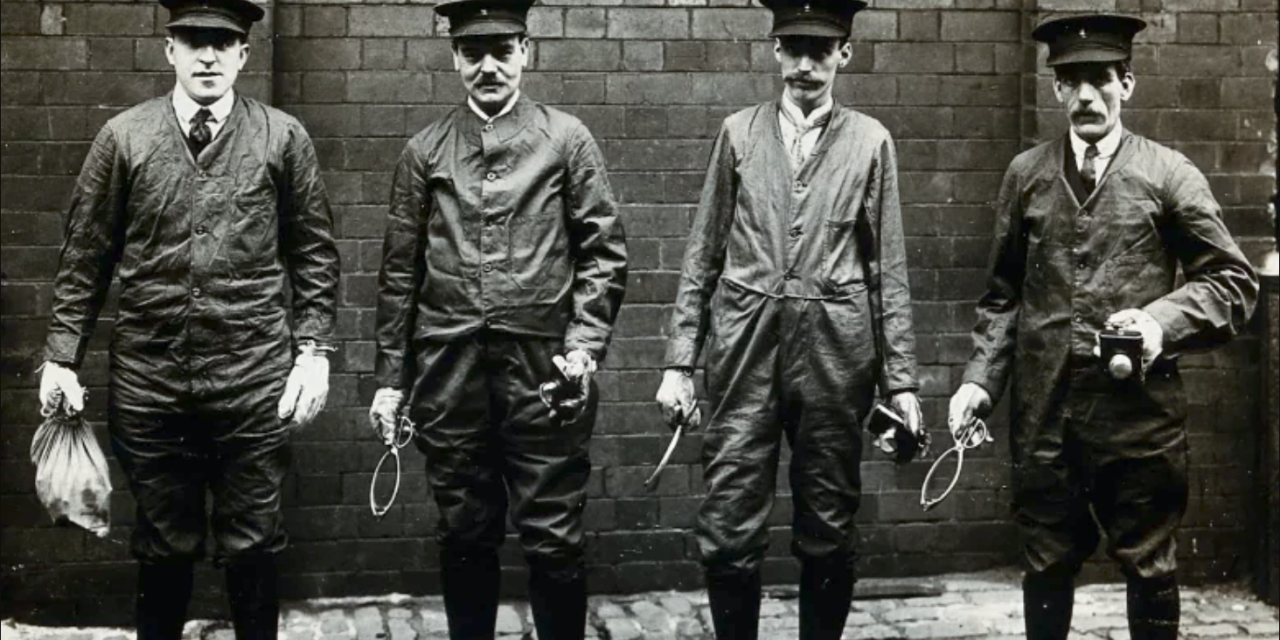
“Mother you held me on your knee. Mother you worked for me. Mother, you taught me to toddle. Mother, you fed me at your dear old breast.” His voice died away to a whisper and in the ensuing silence I looked round the tent at the dim, grave faces of the listeners. In some eyes there were tears already; others gazed abstractedly at or past the pipes or cigarettes which had been taken from their lips. But the eyes brightened as the grocer began to speak again, this time in a cracking but ringing voice signifying repentance and desperation. “Where am I now, mother of mine? Where is the dandy suit I bought with the savings from the work of your old hands? Where are the cabs and horses that I would have? Where is the book you gave me? Where is the little locket? Where is my honour? Where? Oh mother, I see you in your poor little cottage, poking the fire, thinking, ah, thinking of your wandering son. I thank God you cannot see him. Among the burning globes, in the din and degradation, mother, of a gin hell he is to be beheld. A gaol-bird, mother, a broken reed: and the woman at his side is not his wedded wife.” The grocer’s voice dropped for a moment; then flinging out his arms, he began to roar out the concluding passage of his recitation, although sobs at times interrupted his delivery. ” A monster of vice, mother, but with the soft heart of a little boy, he thinks of the cradle that night after night you rocked. Yes, he has lost his honour and his savings. Yes, he is soaked alcohol’s pernicious fumes. He has scoffed at religion. He brags and fights. But in spite of it all there is one clean spot in him, one corner of that rotten heart which the Devil cannot enter. Is it love, mother? Is it love? Love for the old place, for the days that are lost? That is what it, I think. Don’t you?” With these words the grocer fell to the ground and I saw the tears pouring down his thick red face. Some of his friends assisted him to his feet; there was general applause and several of the audience bought him half-pints of beer which were laid in a row along the bench where he was sitting. The old man drank two or three of the half-pints rapidly and then, pleased with the success of his performance, volunteered a comic song. But by this time no one was in a mood for listening and, though the grocer sang a few notes, shuffling his feet heavily upon the ground, while one or two of his immediate friends said: “Listen to the old chap. This is a good one,” nearly all the men in the bar had turned their backs and become interested in other occupations. In one corner of the tent a crowd of people was congregated around a man whom I had seen before, a ratcatcher who, I know, always carried about with him in a small bag an old rat whose fangs had been drawn and with which he would, if a sufficient number of pints were offered, engage in fight. He would kneel down on the ground, his hands clasped behind his back, with the rat in front of him, and would slowly, while gnashing his teeth, force the animal into a corner. Then, after a great show of ferocity, he would seize the rat in his jaws, worry it like a dog, and finally rise to his feet, bow to the audience and replace the rat in the bag which, as a rule, he carried in his hand. This time, however, he was giving a different performance. Evidently he had been out rat-catching that day and, when I first noticed him, he had just taken a young live rat from his pocket and was holding it out, gripped in his fist in front of him. He was a large red-faced man, with a pink and white skin, very smooth, so that one wondered whether he ever shaved. “Half a pint, is it?” he was saying, and looked round him confidently as an auctioneer might look. “Half a pint it is,” said one of the onlookers, and the rat-catcher immediately put his hand to his mouth, wrinkled back his lips, and with his long white teeth bit off the rat’s head. A chorus of laughter and chuckling greeted this exploit, which the rat-catcher repeated twice more and then passed up his glass tankard to be filled.







